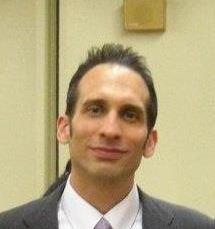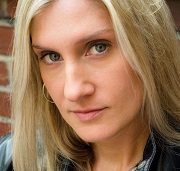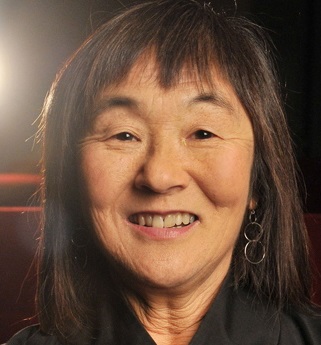JLS Recipient: Michael Levine

I am thrilled to have received the Japanese Language Scholarship Foundation’s scholarship. I was last in Japan two years ago, and I have been wanting to return there ever since, to take another step in my Japanese language education. Not only that, but I have friends there whom I have not been able to see for some time, and the opportunity to meet with them and see how they are doing makes me very happy. Moreover, my Japanese home was Sendai, and I was living there in March 2011; it is very important to me to have an opportunity to return there, however briefly, and see first-hand how things are going with the recovery.Japanese language and literature have become my love and my obsession over the years. Returning to Japan regularly, to study, interact with Japanese, and immerse myself in the culture is a goal of mine, now that I have reestablished a home in the United States. I am very grateful to the Aurora Foundation for helping me to be able to bear the financial costs of spending a summer in Japan. Finally, I would like to thank Professor Laurel Rasplica Rodd of the University of Colorado Boulder, for alerting me to the existence of the Aurora Foundation.
I am a 43-year-old man who has spent nine years of my adult life in Asia, two in China and seven in Japan. My wife and I settled in Sendai, Miyagi Prefecture in 2005. While we were there, I began studying Japanese simply to make the most of my life there; when, previously, we had been in China, I had not been attentive to my Chinese studies, and I deeply regretted this. However, as my Japanese studies continued, and I began to learn more about Japanese literature and culture, improving my Japanese became my number one goal. My time in Sendai was unforgettable. As we were there for seven years, we became quite settled there and made many friends. It was also a wonderful base for exploring Tohoku, an extremely beautiful region of the country that is not on most Western travelers’ Kanto-Kansai centered itineraries. In 2012, we returned to the United States. My goal has become two-fold: to become a scholar of Japanese language and literature; and to teach these to others. Last year I began taking graduate level classes in the Asian Languages and Civilizations Department at the University of Colorado Boulder, and will start full time there in this fall. My study plan in Japan is specifically geared toward succeeding as a graduate student in Japanese. To that end, my plan is to study at the Inter-University Center for Japanese Studies, in Yokohama, from June to August. There, I hope to be able to improve both my ability to discuss, read, and understand high-level Japanese. Longer term, this is but a step in enabling me to teach others about the Japanese language and Japan’s culture and literature.
|
Aurora Challenge Grant Recipient:Tamara Ruppart
 The Aurora Foundation’s generous grant will help to fund Path of Dreams, a short film based on the legendary poet and beauty Ono no Komachi (a Thirty-Six Poet Immortal). This story takes place in ancient Japan, but the themes and emotions relevant today, both in the U.S. and in Japan. Komachi’s inner fire and controversial passion demonstrate the strength and will inherent in all women. Most Japanese only know of Komachi as a legend. They may be aware of one of her poems, but that is all. In reincarnating Komachi as a human being rather than a mythical figure, we intend to infuse legend with originality and actuality. The Aurora Foundation’s generous grant will help to fund Path of Dreams, a short film based on the legendary poet and beauty Ono no Komachi (a Thirty-Six Poet Immortal). This story takes place in ancient Japan, but the themes and emotions relevant today, both in the U.S. and in Japan. Komachi’s inner fire and controversial passion demonstrate the strength and will inherent in all women. Most Japanese only know of Komachi as a legend. They may be aware of one of her poems, but that is all. In reincarnating Komachi as a human being rather than a mythical figure, we intend to infuse legend with originality and actuality.
Tamara Ruppart has worked as a director, producer and actor in both theater and film. On stage, she has directed Komachi, A Thousand Cranes, The Fantasticks, Strike-Slip, and two productions of Velina Hasu Houston’s Kokoro (True Heart). After studying Japanese in college and living in Niigata, Japan, teaching English, Ms. Ruppart has developed a particular affinity for Japan and Japanese culture. Wanting to continue her travels after Japan, Ms. Ruppart went on an overland trip from Beijing, through Inner Mongolia, across the Tibetan Plateau, up to Mt. Everest Base Camp, and down into Kathmandu, Nepal. Ms. Ruppart has studied Digital Filmmaking at New York Film Academy in Los Angeles as well as Script Supervision and Continuity in New York City. After receiving a scholarship, Ms. Ruppart attended The New School for Drama where she graduated with a Master of Fine Arts in Directing. She received a Bachelor of Arts in Theater from Davidson College.
|
Aurora Challenge Grant Recipient: Sharon Yamato
 It is with sincere gratitude that I accept this prestigious award affording me the opportunity to combine my passions of writing and running to write an article and conduct research for a possible film on the sport of long distance running in Japan. It is with sincere gratitude that I accept this prestigious award affording me the opportunity to combine my passions of writing and running to write an article and conduct research for a possible film on the sport of long distance running in Japan.
As a longtime marathon runner, I have always held a deep respect for the Japanese gambare spirit, in this case reflected by the highly popular Japanese sport of distance running. As a Sansei, I am eager to revisit the country of my ancestors to learn how this sport as practiced in Japan can be applied universally—not only to runners but to all those interested in learning how endurance and perseverance can lead to discipline, joy and self-awareness. With the Tokyo Marathon now designated as one of the six World Marathon Majors and the Olympics coming to Japan in 2020, distance running will provide a timely window into this national pastime as well as into Japanese culture and society as a whole. Thank you again for giving me this wonderful opportunity.”
Sharon Yamato is a writer/filmmaker who wrote, produced and directed Out of Infamy: Michi Nishiura Weglyn and A Flicker in Eternity, based on the diary and letters of WWII veteran Stanley Hayami. She is the author of the book, Moving Walls: Preserving the Barracks of America’s Concentration Camps, and co-author of Jive Bomber: A Sentimental Journey, a memoir of Bruce T. Kaji, the founding president of the Japanese American National Museum. As a consultant to the Japanese American National Museum, she has served as editor of the Museum Magazine and project director of The Encyclopedia of Japanese American History from A to Z (revised edition), An American Son: The Story of George Aratani, and More than a Game: Sport in the Japanese American Community. She has written articles for the Los Angeles Times and is currently a columnist for the Rafu Shimpo. She graduated from UCLA with bachelors and masters degrees in English.
|